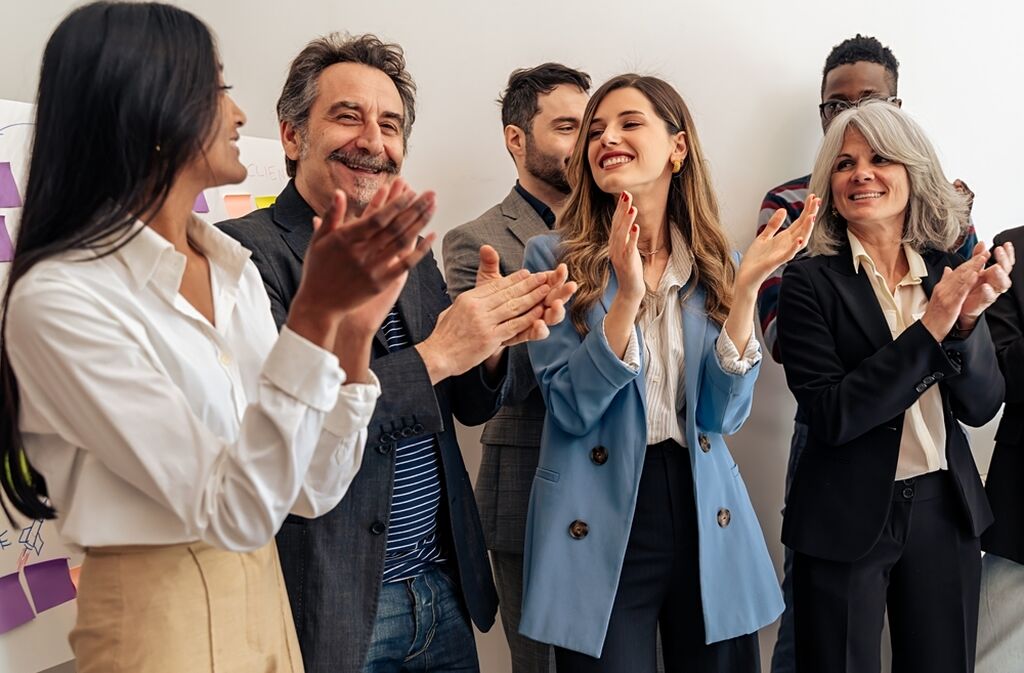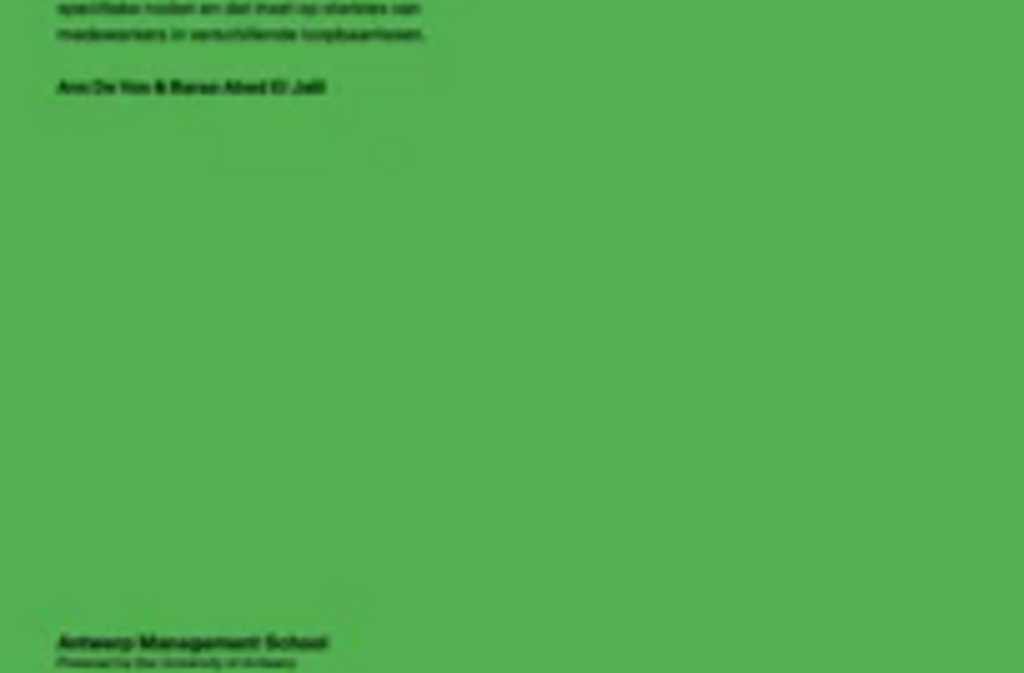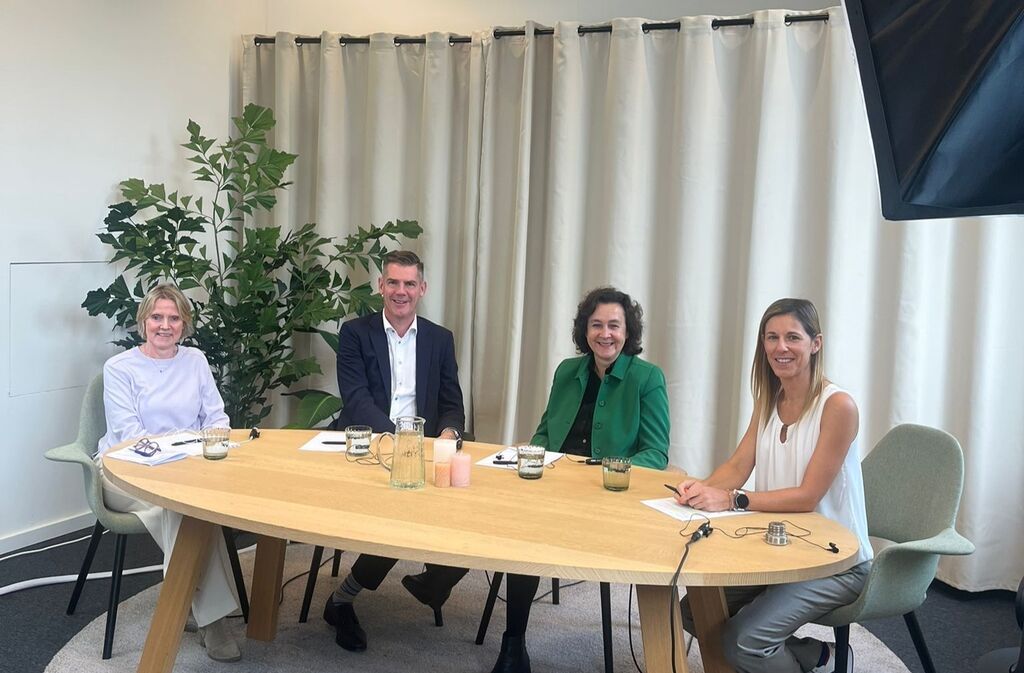The first step should always be to listen to and learn from the voices from within these groups. This is the leading principle within Special Olympics’ Unified Leadership Training. This three-hour-workshop was hosted in June 2022 at Antwerp Management School (AMS) by Special Olympics athletes & ambassadors Celine Ramaekers and Thibeau Bastien. Apart from his role as a Special Olympics athlete ambassador, Thibeau Bastien also works as a junior researcher at AMS, focusing on the inclusion of people with intellectual and developmental disabilities (IDD) in the workplace.
Unified Leadership means that leaders include the perspectives and experiences of historically underrepresented or marginalized groups in their decision making processes. Unified leaders challenge the people around them and create environments where people with IDD get opportunities to have meaningful jobs and roles. In other words, unified leaders strive for someone with IDD to be a full-on employee in a meaningful position with responsibilities like all others.
“Diversity is being invited to a party. Inclusion is being part of the party-planning committee.”
Some key takeaways from the session:
- Leadership has to be redefined: People from marginalized backgrounds may not look, sound or speak like society classically expects from leaders, but that just means we have to open our minds. If leaders are made, they’ve already received more training than many others by overcoming hurdles and living in a world that does not cater to them.
- Not everybody desires the same lifestyle: inclusion does not mean ensuring someone with IDD can adjust and live by the social status quo. Instead, inclusion means everyone can comfortably live and be themselves by using their unique and personal skills in a productive and meaningful way. This means that we all need to challenge the status quo, because it was built on non-inclusive foundations.
- Inclusive behaviour does not need to be a political statement: it benefits everybody! By creating an inclusive environment where people with IDD can thrive, other people with different kinds of disabilities, illnesses, or even personality traits will receive the same open support. In a truly inclusive environment unnoticed or underlying issues will be a shared responsibility.
- Adjust your speech and communication to be more accessible and inclusive: It's a small but practical change that has lots of impact. This ranges from the content to the platform you use. People with a visible IDD do not need to be belittled or infantilized. On the other hand, not all IDD’s (or other disorders, illnesses etc.) are visible: when possible, double-check whether your message was understood. An easy way to start being more inclusive is to always make sure your video content is subtitled!
However, if there is one thing that is applicable over the whole line, it would be that change requires respect from both sides. When you challenge someone to adjust their behavior to be more inclusive, respect that it might take some time for them to change. You never know someone’s background completely: the aim isn’t to get defensive, but to truly collaborate towards a more agreeable and inclusive environment for everyone. Whichever position you are in, IDD or other disability or none at all, Unified Leadership is a good place to start.
Click the links to learn more about Special Olympics Belgium (https://special-olympics.be/) and the Unified Leadership (https://resources.specialolympics.org/leadership-excellence/unified-leadership).
---
The Unified Leadership program is part of the TAG Leadership research project which is conducted at AMS. TAG stands for "Train", "Assess" and "Grow".
TAG is not the first research that is conducted with regards to inclusion of people with IDD. AMS started working on this topic since 2014 with diverse research projects. One of them is ID@Work (Intellectual Disability at Work) about the inclusion of employees with a intellectual disability in the Normal Economic Circuit (NEC). ID@Work was included in the policy document of state secretary Zuhal Demir. Secondly AMS worked on the 'My Talents. For Diversity.' project which tackles this issue by promoting diversity management amongst private and public employers. The focus is the employment of people with intellectual disability in the primary job market.
Want to know more about this research project?
Contact Bart Cambré or Anouk Van Hoofstadt.
Sources:
Juliet Bourke, 2016. Which Two Heads Are Better Than One?: How Diverse Teams Create Breakthrough Ideas and Make Smarter Decisions




